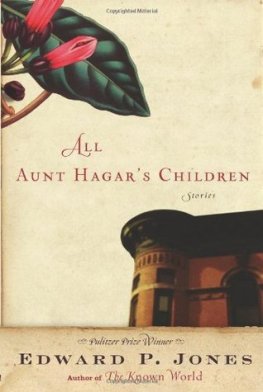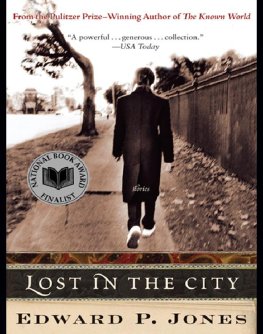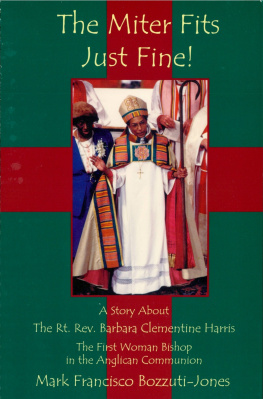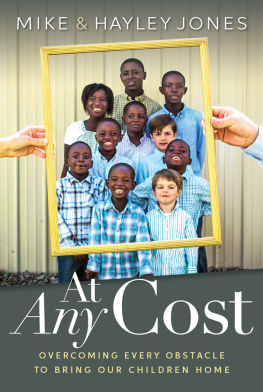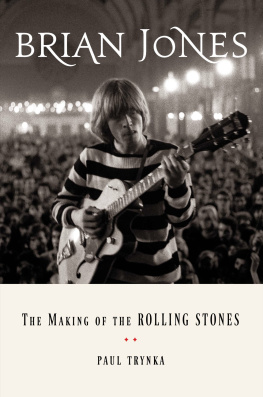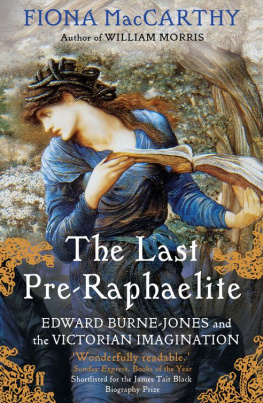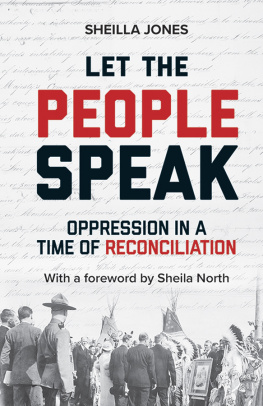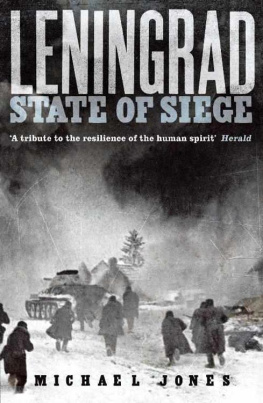Edward P. Jones
All Aunt Hagar's Children
To my sister
Eunice Ann Mary Jones-Washington
and
to the multitudes who came up out of the South
for something better, something different, and, again,
to the memory of my mother,
Jeanette S. M. Jones,
who came as well and found far less
than even the little she dared hope for
That 1901 winter when the wife and her husband were still new to Washington, there came to the wife like a scent carried on the wind some word that wolves roamed the streets and roads of the city after sundown. The wife, Ruth Patterson, knew what wolves could do: she had an uncle who went to Alaska in 1895 to hunt for gold, an uncle who was devoured by wolves not long after he slept under his first Alaskan moon. Still, the night, even in godforsaken Washington, sometimes had that old song that could pull Ruth up and out of her bed, the way it did when she was a girl across the Potomac River in Virginia where all was safe and all was family. Her husband, Aubrey, always slept the sleep of a man not long out of boyhood and never woke. Hearing the song call her from her new bed in Washington, Ruth, ever mindful of the wolves, would take up their knife and pistol and kiss Aubreys still-hairless face and descend to the porch. She was well past seventeen, and he was edging toward eighteen, a couple not even seven whole months married. The houseand its twin next doorwas always quiet, for those city houses were populated mostly by country people used to going to bed with the chickens. On the porch, only a few paces from the corner of 3rd and L Streets, N.W., she would stare at the gaslight on the corner and smell the smoke from the hearth of someones dying fire, listening to the song and remembering the world around Arlington, Virginia.
That night in late January she watched a drunken woman across 3rd Street make her way down 3rd to K Street, where she fell, silently, her dress settling down about her once her body had come to rest. The drunken woman was one more thing to hold against Washington. The woman might have been the same one from two weeks ago, the same one from five weeks ago. The woman lay there for a long time, and Ruth pulled her coat tight around her neck, wondering if she should venture out into the cold of no-mans-land to help her. Then the woman pulled herself up slowly on all four limbs and at last made her stumbling way down K toward 4th Street. She must know, Ruth thought, surely she must know about the wolves. Ruth pulled her eyes back to the gaslight, and as she did, she noticed for the first time the bundle suspended from the tree in the yard, hanging from the apple tree that hadnt borne fruit in more than ten years.
Ruth fell back a step, as if she had been struck. She raised the pistol in her right hand, but the hand refused to steady itself, and so she dropped the knife and held the pistol with both hands, waiting for something terrible and canine to burst from the bundle. An invisible hand locked about her mouth and halted the cry she wanted to give the world. A wind came up and played with her coat, her nightgown, tapped her ankles and hands, then went over and nudged the bundle so that it moved an inch or so to the left, an inch or so to the right. The rope creaked with the brittleness of age. And then the wind came back and gave her breath again.
A kittens whine rose feebly from the bundle, a cry of innocence she at first refused to believe. Blinking the tears from her eyes, she reached down and took up the knife with her left hand, holding both weapons out in front of her. She waited. What a friend that drunken woman could be now. She looked at the gaslight, and the dancing yellow spirit in the dirty glass box took her down the two steps and walked her out into the yard until she was two feet from the bundle. She poked it twice with the knife, and in response, like some reward, the bundle offered a short whine, a whine it took her a moment or two to recognize.
So this was Washington, she thought as she reached up on her tiptoes and cut the two pieces of rope that held the bundle to the trees branch and unwrapped first one blanket and then another. So this was the Washington her Aubrey had brought her across the Potomac River toa city where they hung babies in night trees.
When Aubrey Patterson was three years old, his father took the family to Kansas where some of the fathers people were prospering. The sky goes all the way up to God napping on his throne, the fathers brother had written from Kansas, and you can get much before he wakes up. The father borrowed money from family and friends for train tickets and a few new clothes, thinking, knowing, he would be able to pay them back with Kansas money before a year or so had gone by. Pay them all back, son, Aubreys father said moments before he died, some twelve years after the family had boarded the train from Kansas and returned to Virginia with not much more to their names than bile. And with the clarity of a mind seeing death, his father, Miles, reeled off the names of all those he owed money to, commencing with the man to whom he owed the most.
Aubreys two older sisters married not long after the family returned to Virginia and moved with their husbands to other farms in Arlington County. TheyMiles, the mother, Essie, and Aubreylived mostly from hand to mouth, but they did not go without. Aubreys sisters and their husbands were generous, and the three of them, in their little house on their little piece of land with a garden and chickens and two cows, were surrounded by country people just as generous who had known the family when they had had a brighter sun.
A little bit before Aubrey turned thirteen, it came to be that his mother took to going off down the road most evenings. Goin to set with Miss Sally a piece, she would say of the old woman a half mile or so away. But her son learned that way before Miss Sallys cabin there lived a man in a shack with a busted door, and that was often where she stopped. If his father, a consumptive, knew, he never said. At first, before he closed his heart to her, Aubrey would stand on the porch and watch her go off, one of the yellow dogs following her until she turned and threw a stone at her. The other dog rarely moved from under the house. Aubrey would watch the road even after she had disappeared. Whatcha you doin, son? his father would ask from inside. Come read me a few verses, maybe some chapters. His mother had taught him to read in Kansas when he was four. Her people were all book people.
They grew closer, the father and the son, in a way that had not been possible in Kansas, where each days new catastrophe had a claim on their hearts. His father encouraged him to attend church. Its but a little bit outa your whole life, son, Miles said, remembering how angry God must have been after he had awakened from his nap when the family was in Kansas. And God has a long memory. His son was nearing fourteen then. So each Sunday morning, the boy, alone, would set off down the road, opposite the way to Miss Sallys, carrying the Bible inherited from his maternal grandfather, the same book he read from to his father about the trials and tribulations of the Jews thousands of years before the first black slave set foot in America.
Now Ruth Hawkins, whom Aubrey would one day marry, had four brothers born on one side of her and four brothers born on the other side, so men were no mystery to her, and they were not gods. She and Aubrey had played together as little bitty babies, though they had not remembered. But the old women all around Arlington remembered, and they liked to recite the short history of the two after Aubrey returned from Kansas. The old women would mingle after church, only steps away from the Praying Rock Baptist Church graveyard, leaning on walking sticks and on grandchildren anxious as colts to be out and away. Come here, little bit, they would say to Ruth and Aubrey, seeing down the line that the two had a future together. You member that time, and they would go on with a story about two playing infants that seemed to have no end.

